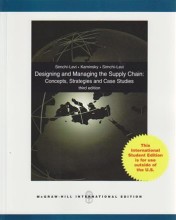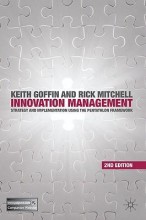Summary: Hoe Users And Non Users Matter
- This + 400k other summaries
- A unique study and practice tool
- Never study anything twice again
- Get the grades you hope for
- 100% sure, 100% understanding
Read the summary and the most important questions on Hoe users and non users matter
-
1 Introduction
This is a preview. There are 1 more flashcards available for chapter 1
Show more cards here -
What is the use of a technology?
There is no one correct use for a technology. Of course, there may be one dominant use of a technology, or a prescribed use, or a use that confirms the manufacturer's warrenty, but there is no one essential use that can be deduced from the artifact itself. -
What is a user-related problem to many innovators of new technologies?
Working out who the new users are and how they will actually interact with a new technology. -
2 Different approaches to users
-
How are users and technology connected?
In most literature they are not connected. But when they are, users and technology are seen as two sides of the same problem - as co-constructed. -
3 The SCOT approach: Users as Agents of Technological Change
This is a preview. There are 1 more flashcards available for chapter 3
Show more cards here -
What was the first approach to draw attention to users?
The SCOT approach. -
What is the SCOT approach?
The Social Construction of Technology.
In defining the SCOT approach, conceived of users as a social group that played a part in the construction of a technology. -
What is a technology's interpretive flexibility?
Different social groups could construct radically different meanings of a technology -
What are the mechanisms within the SCOT approach?
Social processes, whereby interpretative flexibility is curtailed. Eventually, a technology stabilizes, interpretative flexibility vanishes, and a predominant meaning and a predominant use emerge. -
What are the critiques of the SCOT approach?
- It was criticized for its rather cavalier attitude toward users;
- It closed down the problem of users too early
- It did not show how users could actively modify stable technologies -
What are "agents of technological change"?
Users that radically change the use of a technology. -
What did Kline and Pinch do to correct SCOT's neglect of gender?
They argued that users should be studied as a crucial location where often-contradictory gender identities and power relationships were woven around technologies.
- Higher grades + faster learning
- Never study anything twice
- 100% sure, 100% understanding
































